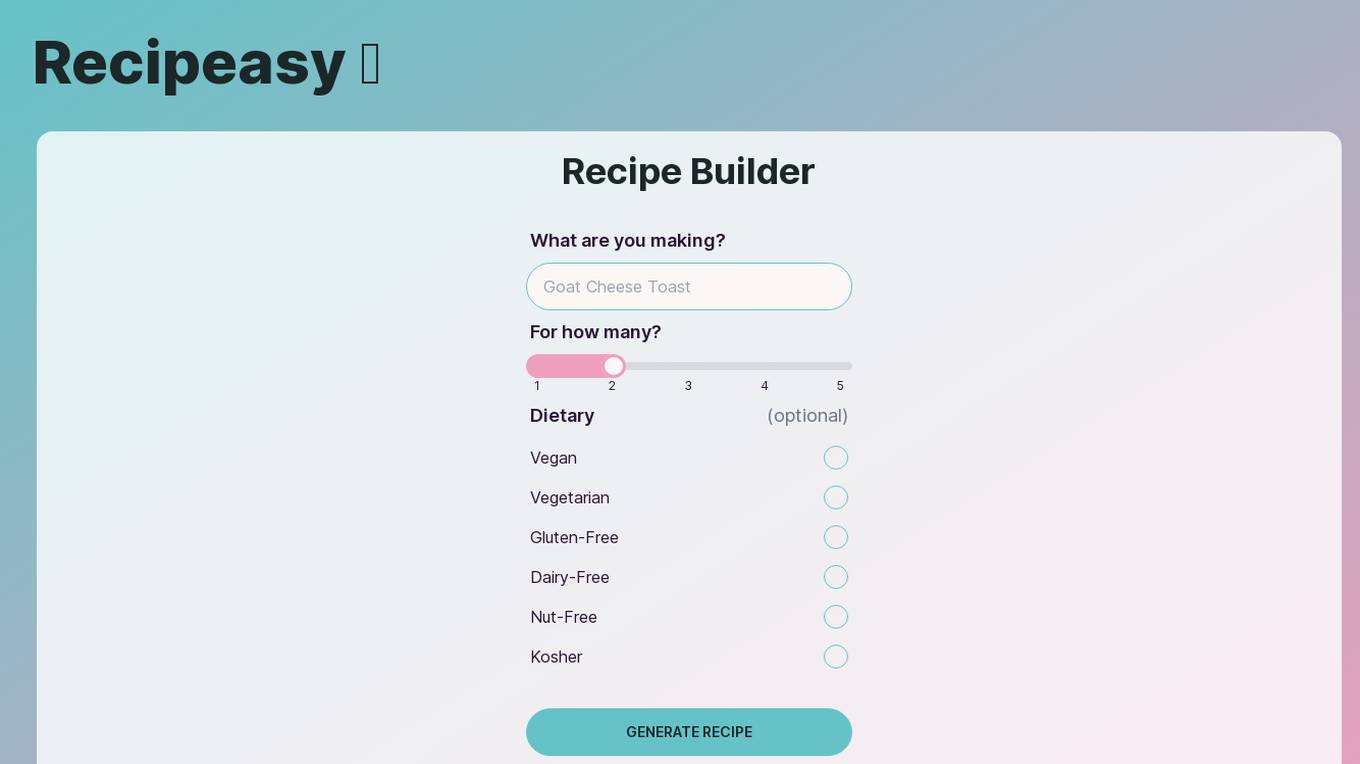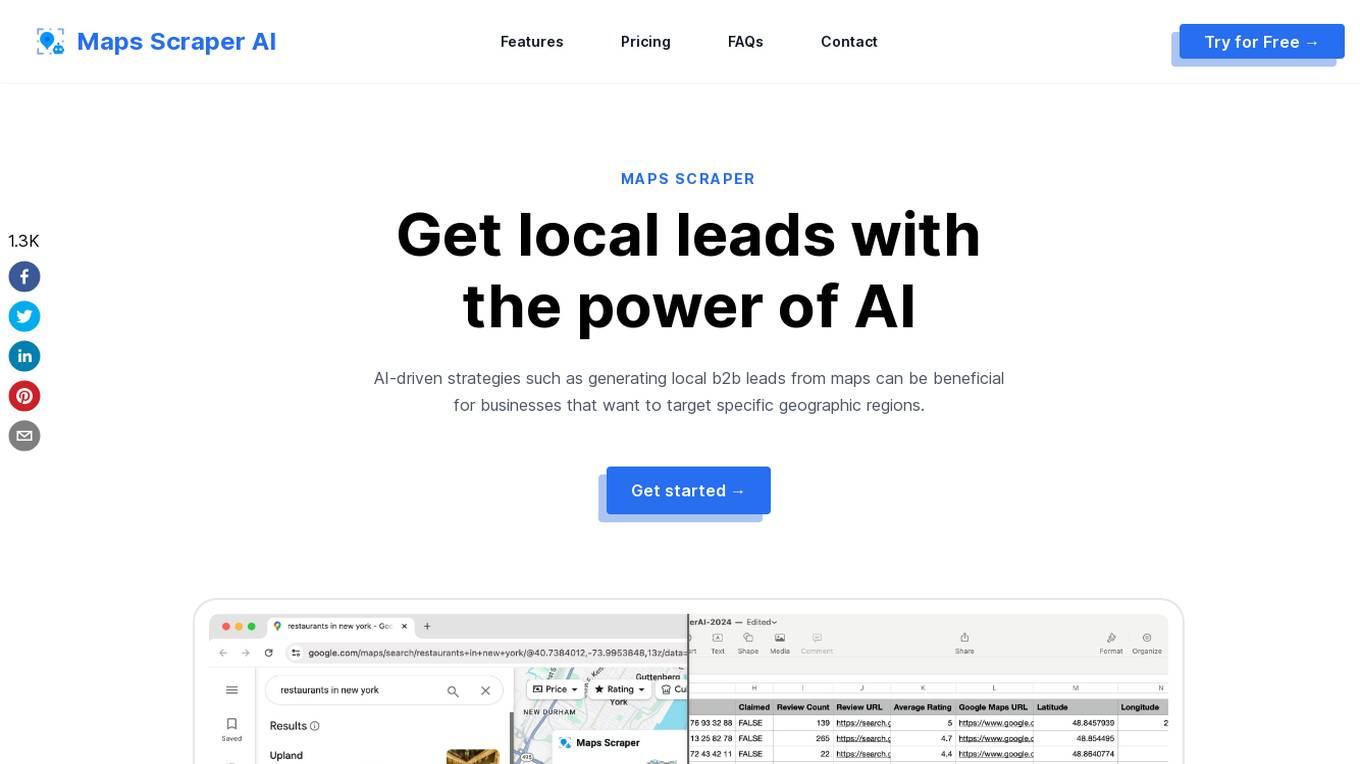Best AI tools for< Accommodate Dietary Needs >
3 - AI tool Sites

Recipeasy
Recipeasy is an AI-powered recipe generator that helps users create easy and delicious meals. The website offers a Recipe Builder where users can input what they are making, for how many people, and dietary preferences such as vegan, vegetarian, gluten-free, dairy-free, nut-free, and kosher. The AI algorithm then generates a customized recipe based on the inputs provided. Recipeasy is designed to simplify the cooking process and provide users with quick and tasty meal ideas. The platform is user-friendly and suitable for both experienced cooks and beginners.

MapsScraperAI
MapsScraperAI is an AI-powered tool designed to extract leads and data from Maps. It offers businesses the ability to generate local B2B leads, conduct research, monitor competition, and obtain business contact details. With features like batch lookup, lightning-fast results, and the unique ability to extract email addresses, MapsScraperAI streamlines the process of data extraction without the need for coding. The tool mimics real user behavior to reduce the risk of being blocked by Maps and ensures timely updates to accommodate any changes on the Maps website.

Clicli
Clicli is an all-domain-compatible commercial photography tool that allows users to create engaging content with eye-catching scenes. With Clicli, you can easily generate your own brand product photos using pre-designed stunning scenes customized for various product categories. Clicli also supports custom canvas sizes to accommodate various channels and independently matching scene elements to generate product images.
0 - Open Source AI Tools
1 - OpenAI Gpts

Accommodate
Interactive advisor for crafting equitable workplace accommodations and assessing accessibility.